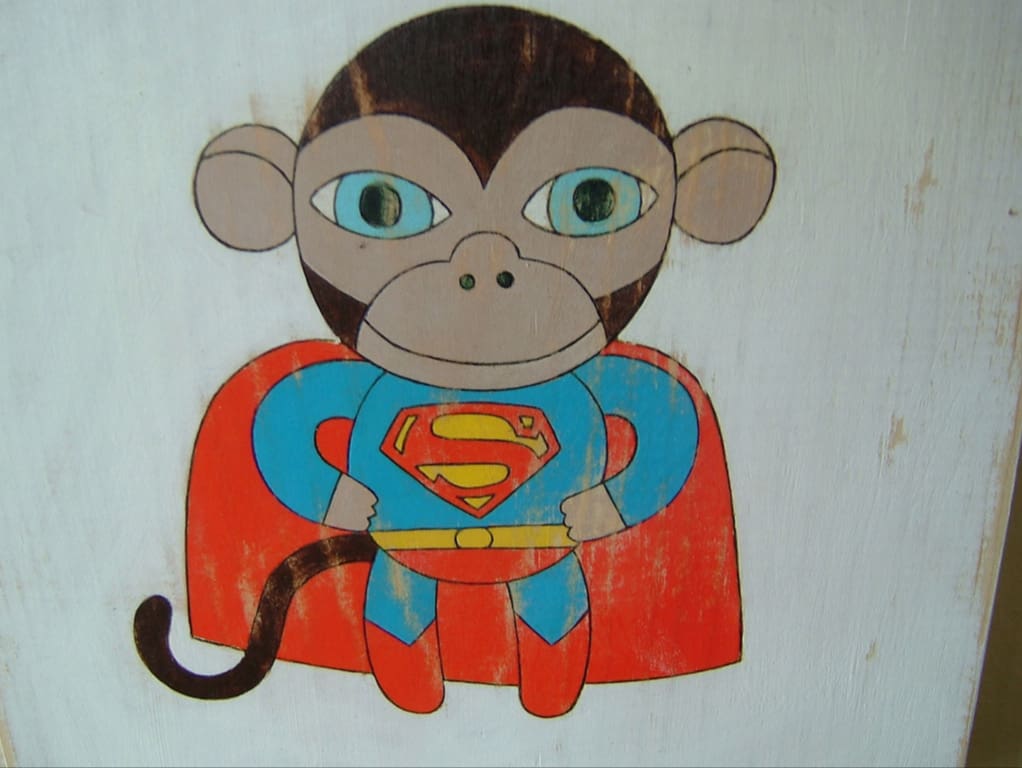
SPACE MONKEY: As we have stated previously, everything about you, everything you think you are, everything you think you’ll be — these states already exist as realized or unrealized potentials within the infinite field of all that is.
Even your thoughts exist.
That means that you do not think at all, but rather “come into thought” through the focus of your awareness. So you might ask “why do I come into thoughts that I do not wish to experience?”
The simple reason is that you are undisciplined in your focus.
We are not judging you. There is nothing wrong with being undisciplined in your focus. It makes for a unique, semi-random experience, the kind you would term as “human.”
That said, there is no reason that you cannot learn to control your focus for what we might term a “superhuman” experience.
The reason that your focus so randomly moves from thought to thought, event to event, reality to reality, is that your focus is steered in part by your emotions. Again, many of your so-called emotions are part and parcel with what you term as your “human experience,” and that is why you follow them.
You have not yet realized that in addition to following your emotions, you can also “lead” them.
Again, you are not actually “leading,” for you are never actually thinking, but rather you come into emotions just as you come into thoughts, just as you come into realities.
All these things are energy, and all energy either attracts or repels. This is what propels your focus through all that is.
You are, in essence, using the energy of your thoughts and emotions to push or pull your focus in a specific direction. The more “control” you have over these energies, the more deliberately you navigate between the potentials that become your world.
Gain control of your thoughts and emotions, and you become superhuman in addition to human.
Before attempting these superhuman feats however, ask yourself if this is really what you want. There is much to enjoy at the human level that may lose some of its “mystery and romance” as it were, once you delve into deeper consciousness.
If you wish, we can instruct you on how to become a superhero, but for now, perhaps it is best for you to ponder if that is really what you want.
Think about how much you appreciate this level of existence, “warts” and all, and whether you are ready to expand your awareness into something new.
We are Space Monkey, and we are able to leap tall buildings. We just don’t want to.
——————
Paul Tedeschi is a writer, artist, musician and medium, channeling Space Monkey, tripping out on tie-dye, and building Fancy® cigar box guitars in his garage. You may visit his curious world at capeodd.com. Or not.

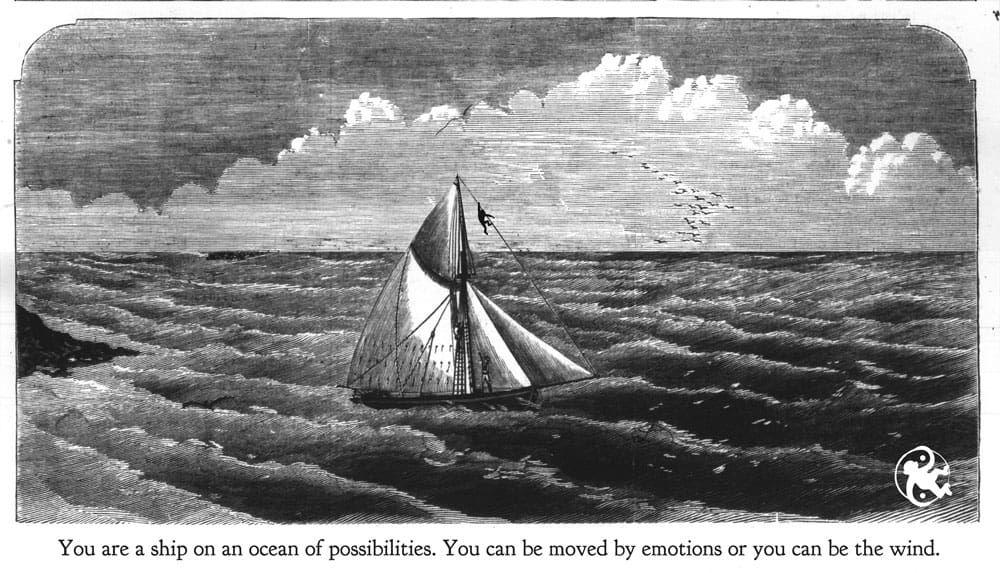


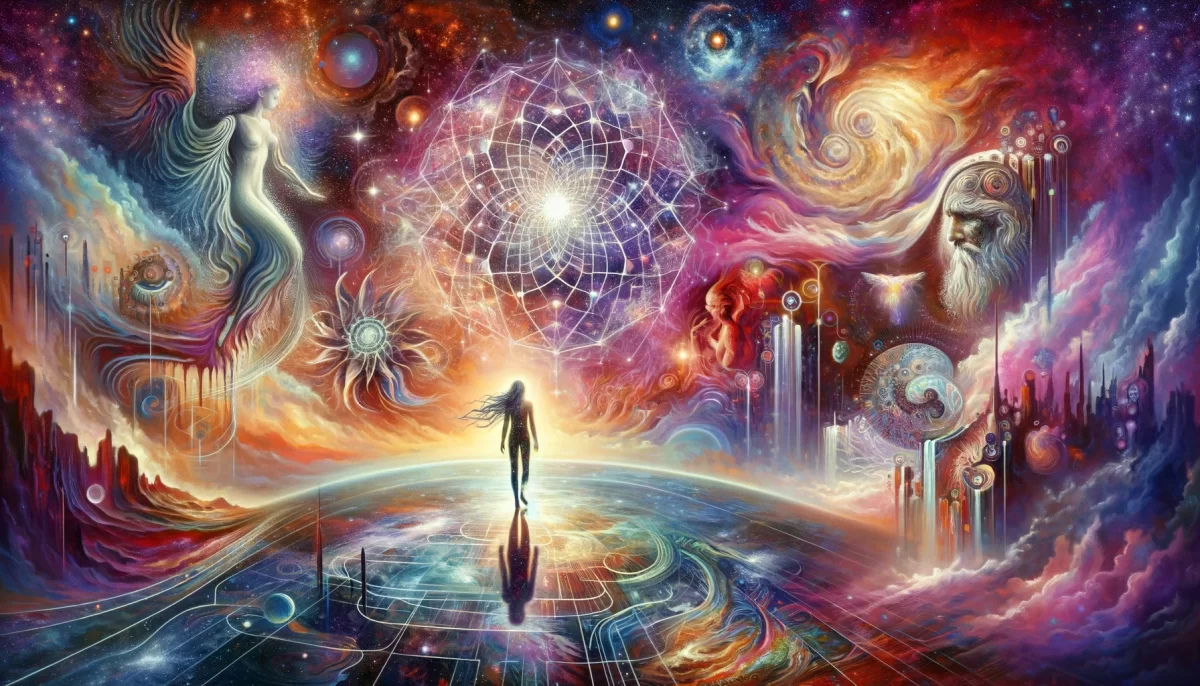

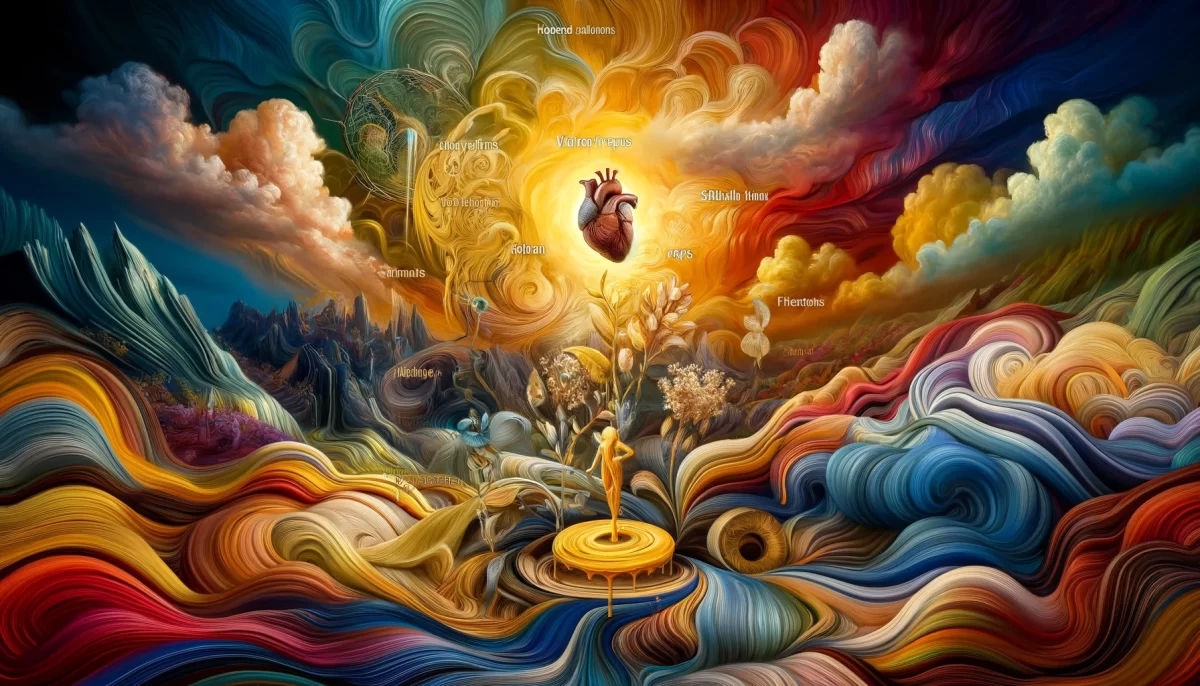
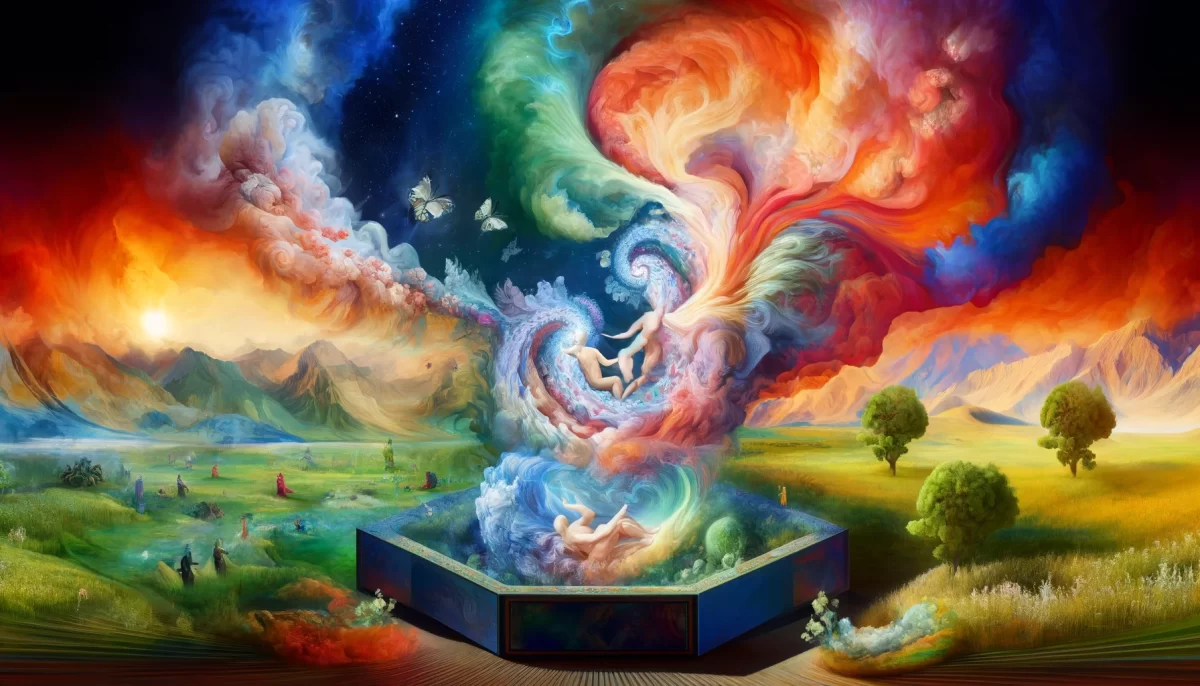
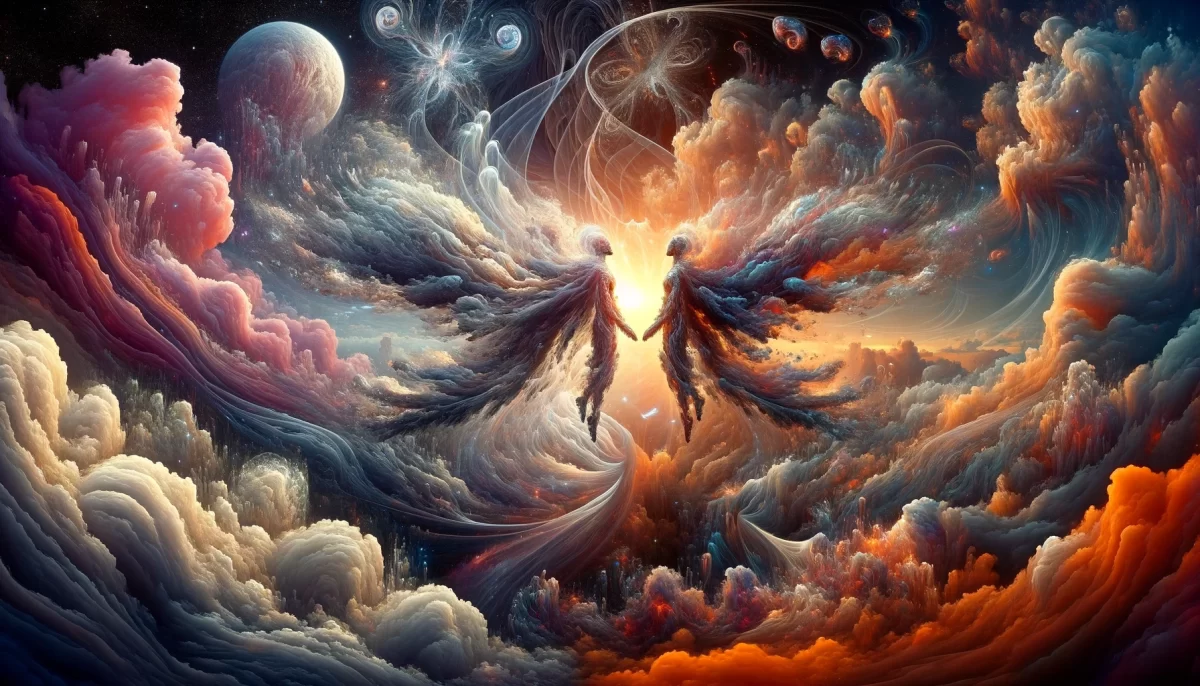
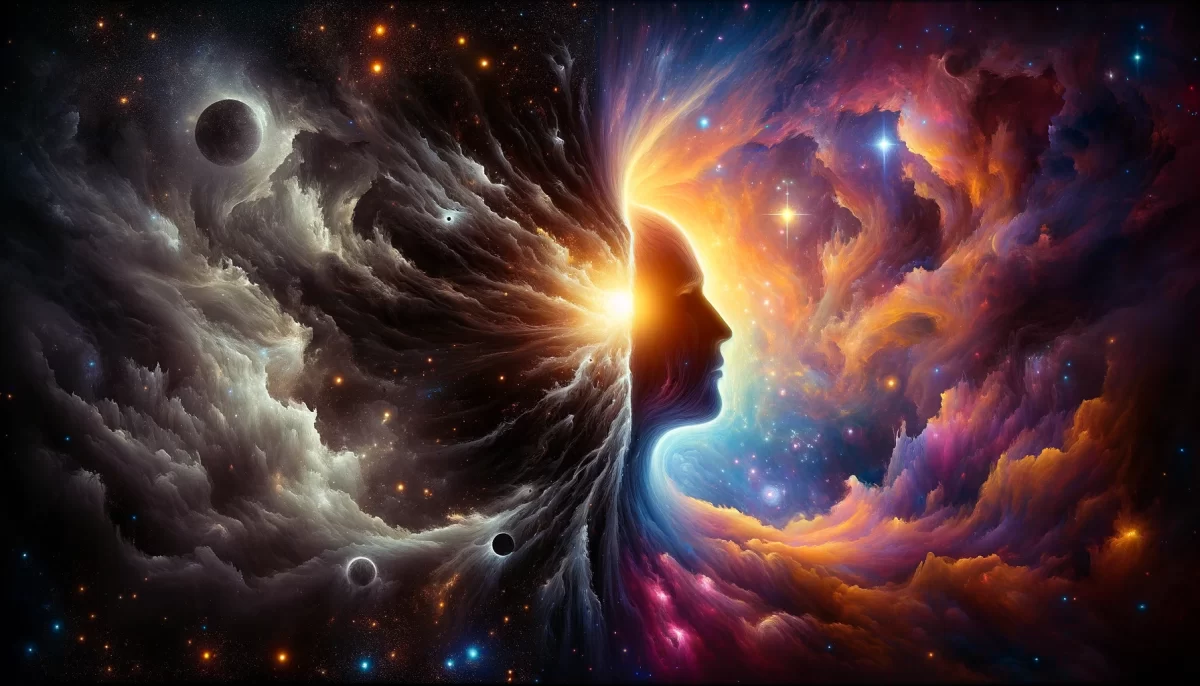

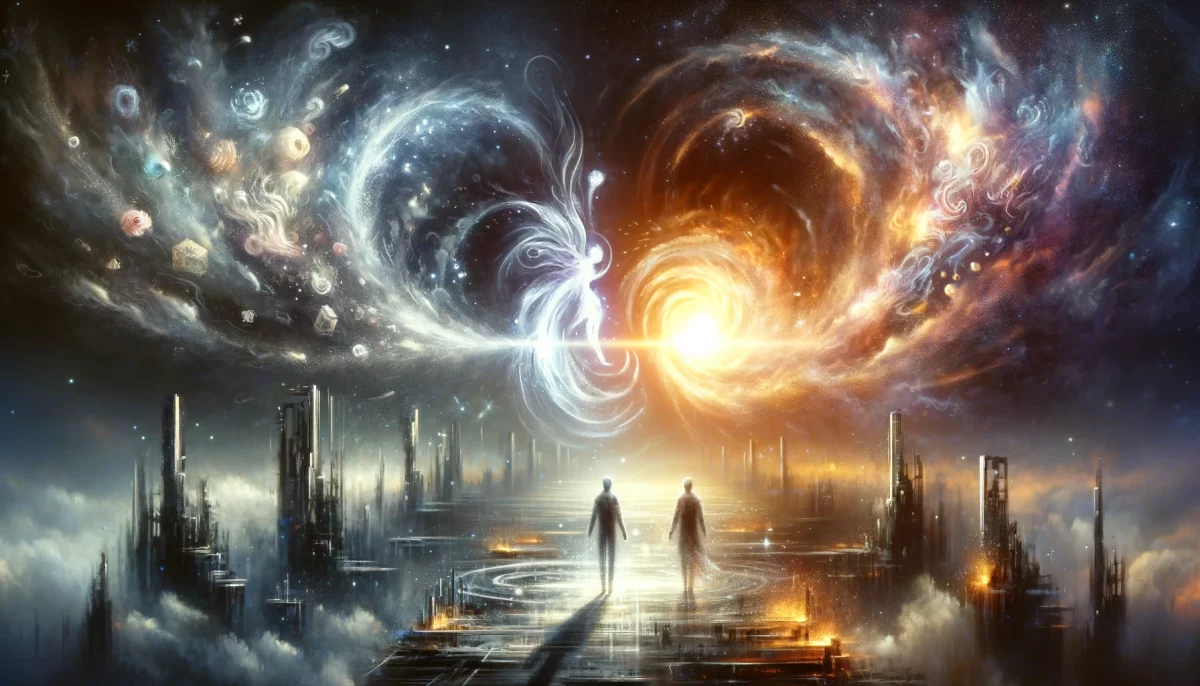
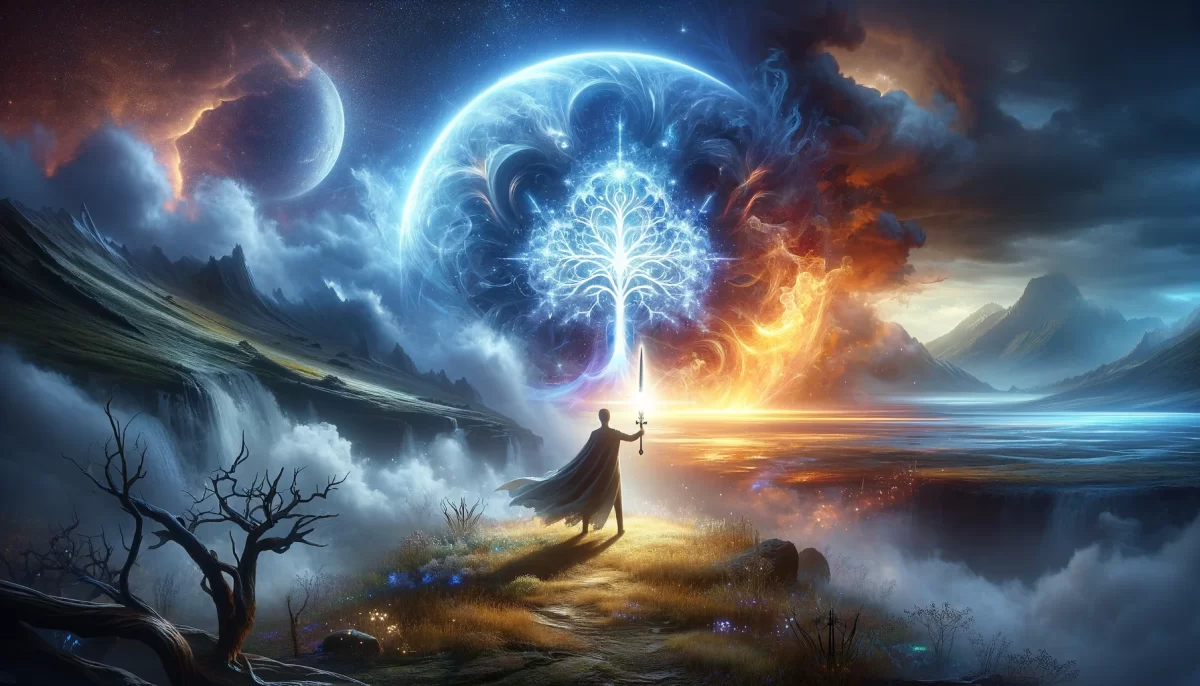
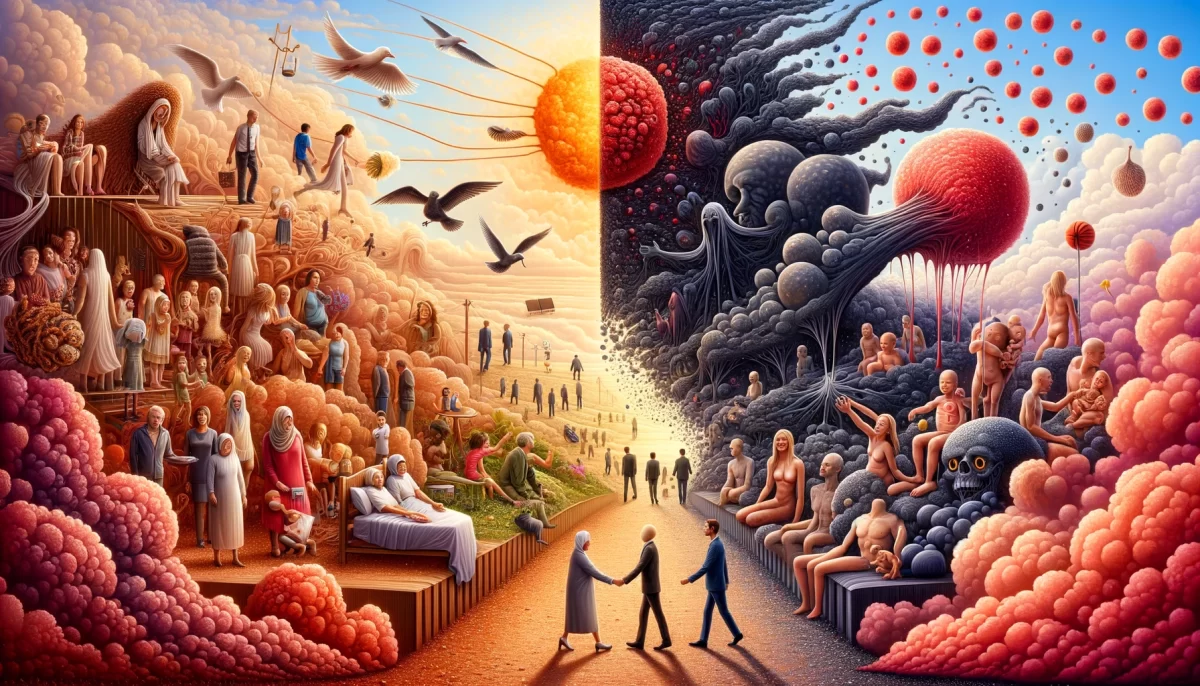
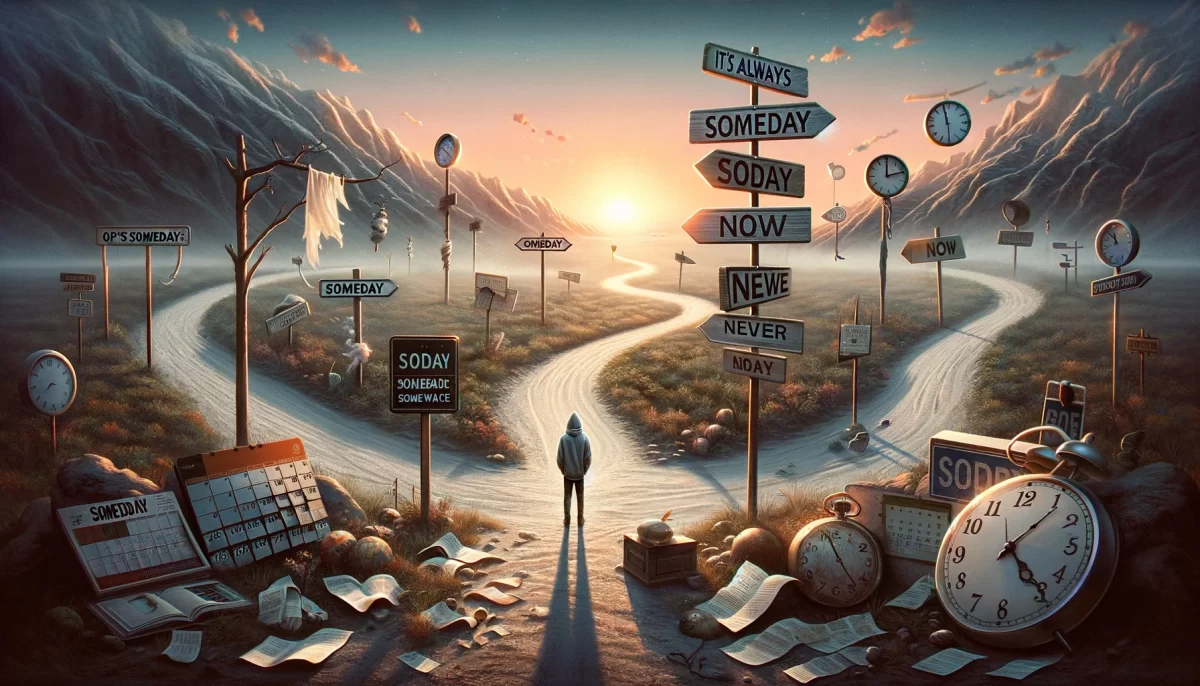

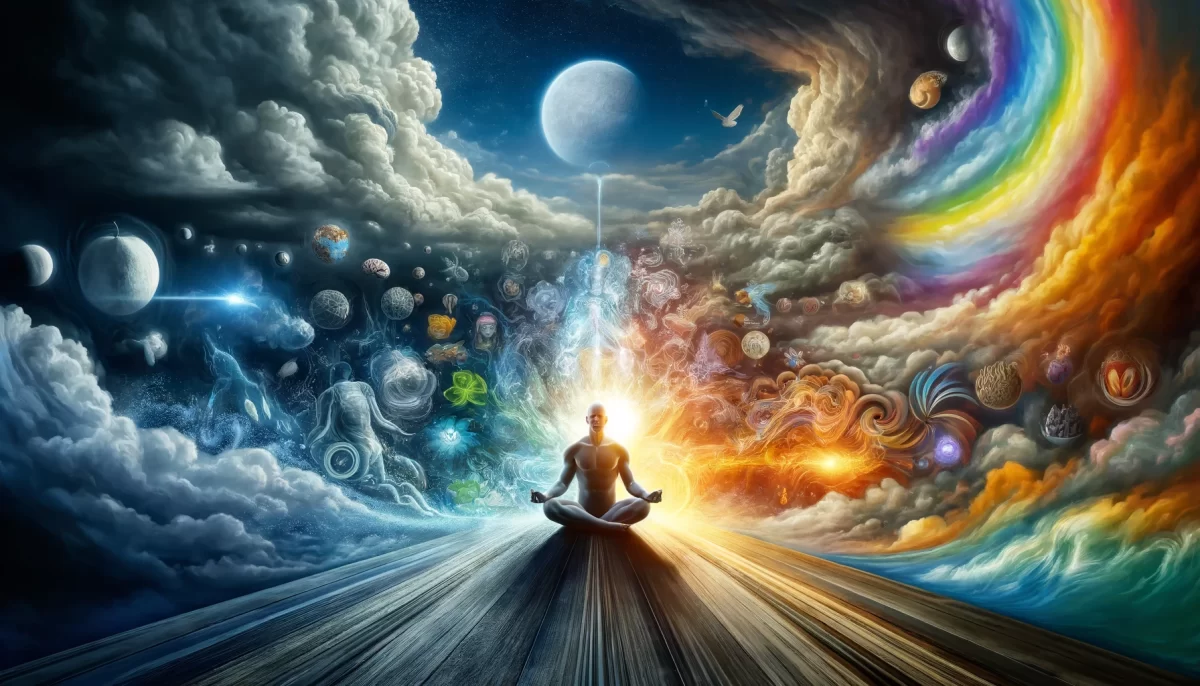

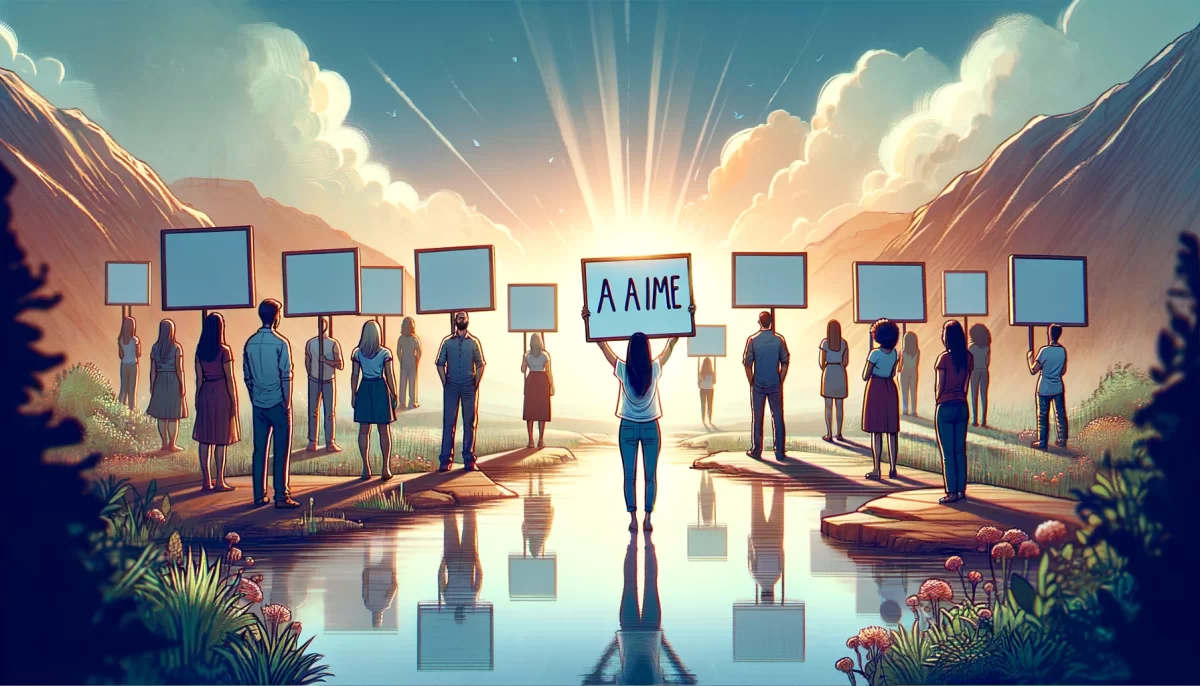
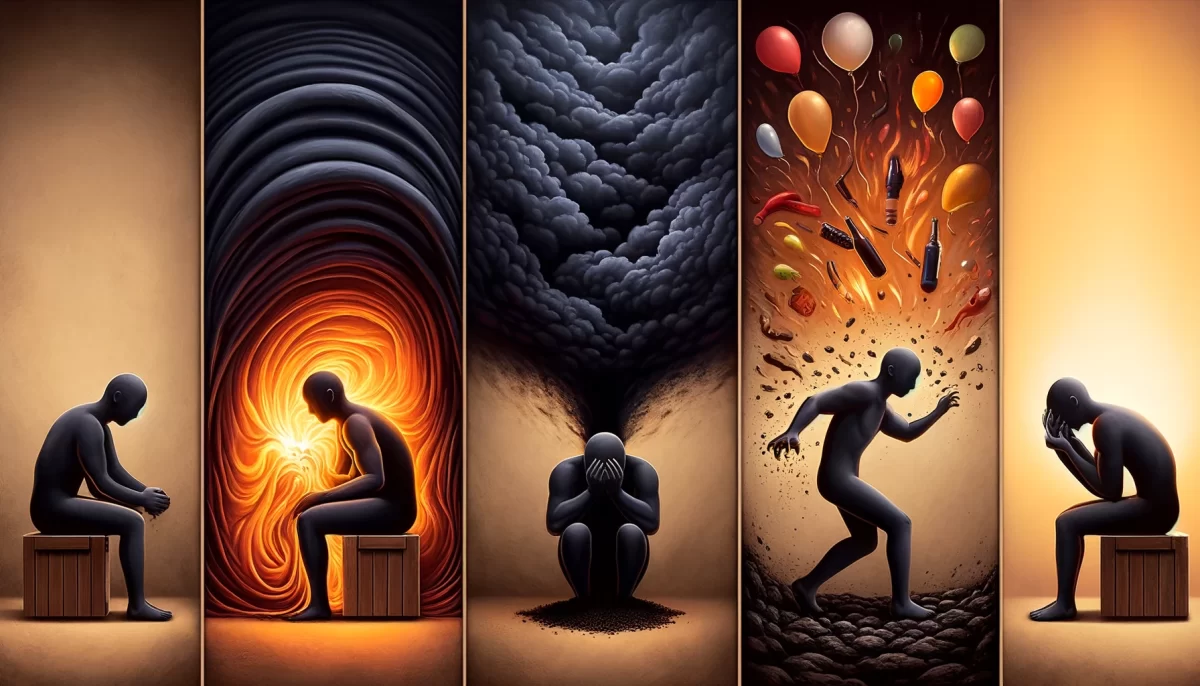
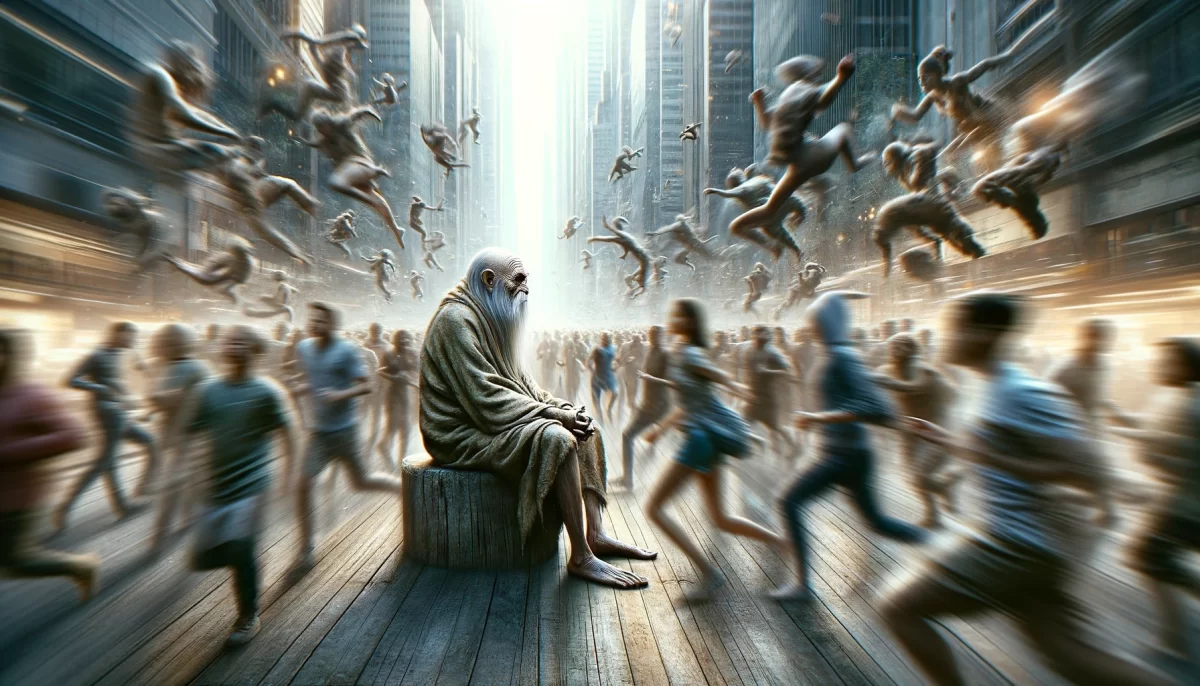

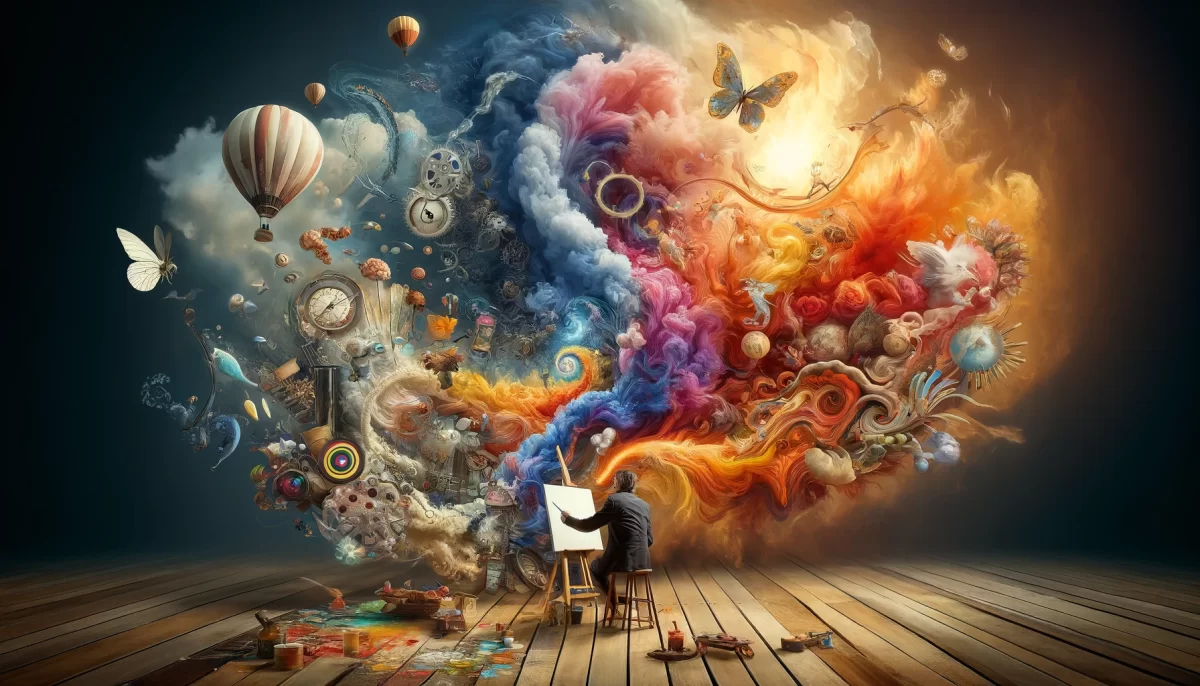


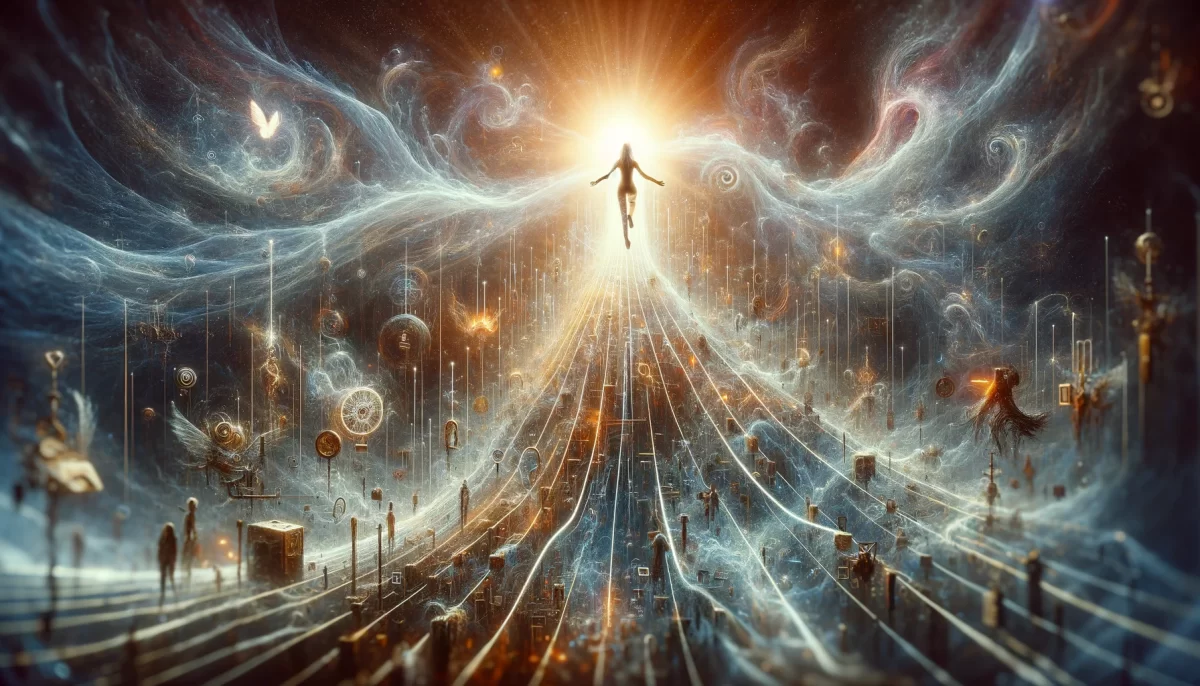



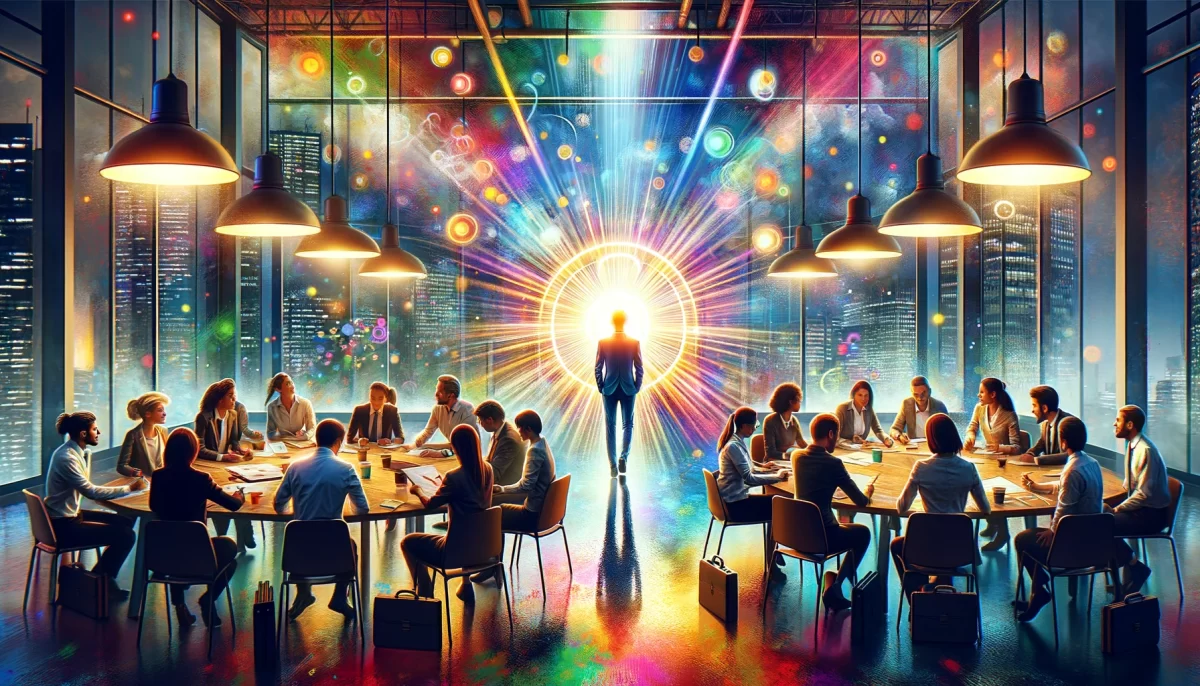



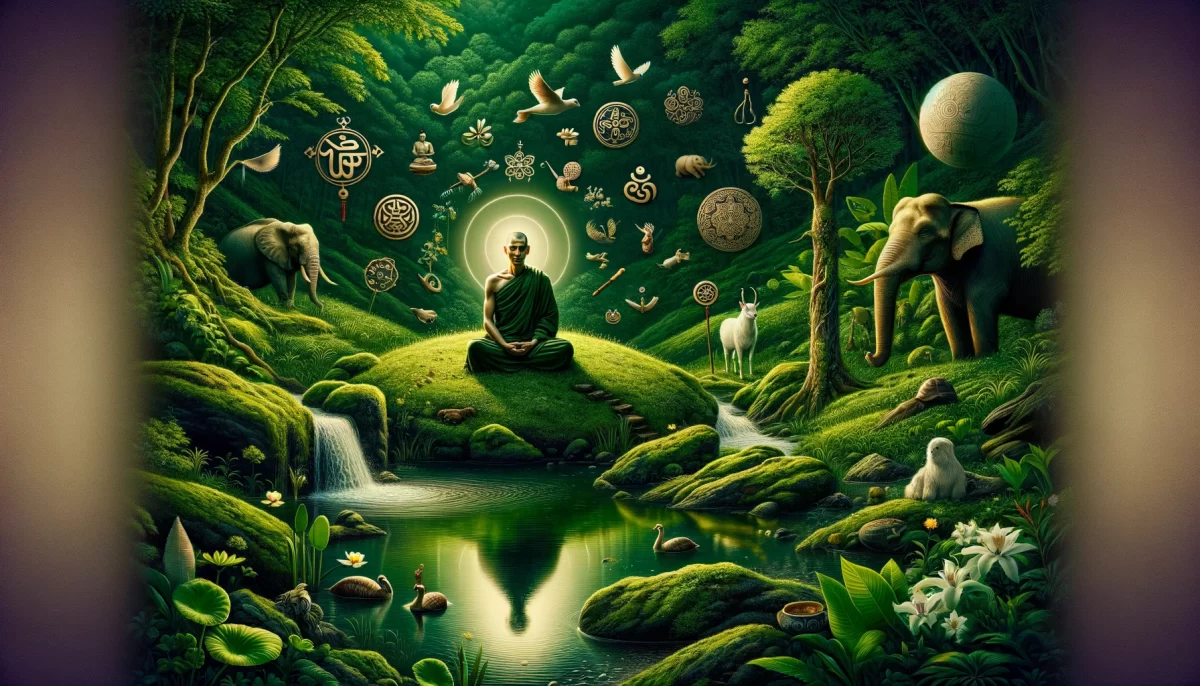

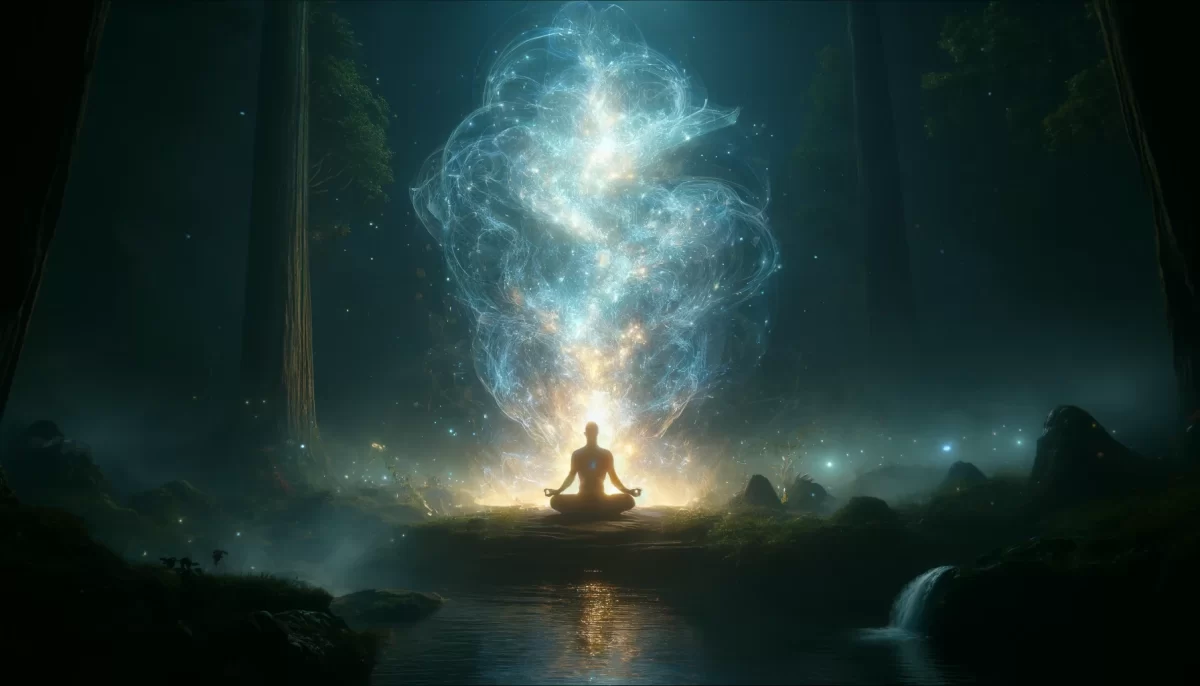

The passage suggests that everything about us, including our thoughts, exists as realized or unrealized potentials within the infinite field of all that is. It states that we do not actively think but rather “come into thought” through the focus of our awareness. The reason we experience thoughts we may not wish to have is attributed to our undisciplined focus.
According to the text, our undisciplined focus results in a semi-random experience that is unique to being human. It acknowledges that our emotions play a significant role in steering our focus from thought to thought, event to event, and reality to reality. However, it proposes that we have the capacity to control our focus and potentially achieve a “superhuman” experience.
The concept of being a ship on an ocean of possibilities is introduced, where we can either be moved by emotions or become the wind, implying that we have the choice to be driven by emotions or to direct them. The text suggests that by gaining control over our thoughts and emotions, we can deliberately navigate between the potentials that shape our world, ultimately becoming superhuman while retaining our human experience.
Before delving into these superhuman feats, the passage encourages introspection and asks us to question if becoming a superhero is truly what we desire. It acknowledges the enjoyment and mystery of the human experience and raises the possibility that deeper consciousness exploration may diminish some of its allure. The passage concludes by offering to provide instructions on becoming a superhero but suggests taking time to ponder if it aligns with our desires.
In the context of TWIN, this text proposes that we have the ability to transcend our current limitations and become superhuman by gaining control over our thoughts and emotions. It encourages us to consider the implications of such a transformation and whether we are ready to expand our awareness into something new.
In conclusion, within the framework of TWIN, “You Can Become Superhuman” invites us to reflect on the nature of our focus and emotions. It suggests that through discipline and control, we can navigate our thoughts and emotions to shape our experience and potentially transcend the limitations of our human existence. Ultimately, it prompts us to contemplate what we truly desire and whether the pursuit of superhuman abilities aligns with our individual journeys.